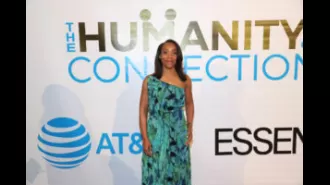Boston to pay Black police officers $2.6M to settle discrimination lawsuit.
Boston city settles $2.6m discrimination lawsuit over drug use hair test.
November 17th 2023.

The city of Boston has reached a settlement of $2.6 million to resolve a long-standing federal discrimination lawsuit that involved a controversial hair test to identify drug use. The lawsuit was initiated by Black police officers in 2005, claiming that the hair test was inherently discriminatory and it disproportionately affected Black individuals due to their hair’s heightened susceptibility to false positives.
Both the city and the testing company employed by the Boston Police Department denied any racial bias in the testing procedures. However, the First Circuit Court of Appeals considered the case on two occasions and agreed that the hair test had a disproportionate impact on Black officers. Two years later, the court found sufficient evidence to indicate that the city persisted in using the test even after being informed of a less discriminatory alternative.
In 2018, the case proceeded to trial and resulted in the recently announced settlement. Oren Sellstrom, from Lawyers for Civil Rights, remarked, “This settlement puts an end to a long, ugly chapter in Boston’s history. As a result of this flawed test, our clients’ lives and careers were completely derailed. The city has finally compensated them for this grave injustice.”
The Massachusetts Association of Minority Law Enforcement Officers, also a plaintiff in the case, expressed concern over the lasting impact of the test on the diversity of the police force. Jeffrey Lopes, president of the association, stated, “The city is still trying to make up for the loss of diversity on the police force that resulted from use of the hair test.”
The city’s decision to abandon the contentious test in 2021 preceded the resolution of damages paid to three Black officers and a cadet, all of whom either lost their jobs or faced disciplinary actions as a consequence of the test. Although the settlement was acknowledged, specific details were not formally filed. Attempts to obtain comments from the Boston Police Department and the agency’s lead attorney were unsuccessful.
Both the city and the testing company employed by the Boston Police Department denied any racial bias in the testing procedures. However, the First Circuit Court of Appeals considered the case on two occasions and agreed that the hair test had a disproportionate impact on Black officers. Two years later, the court found sufficient evidence to indicate that the city persisted in using the test even after being informed of a less discriminatory alternative.
In 2018, the case proceeded to trial and resulted in the recently announced settlement. Oren Sellstrom, from Lawyers for Civil Rights, remarked, “This settlement puts an end to a long, ugly chapter in Boston’s history. As a result of this flawed test, our clients’ lives and careers were completely derailed. The city has finally compensated them for this grave injustice.”
The Massachusetts Association of Minority Law Enforcement Officers, also a plaintiff in the case, expressed concern over the lasting impact of the test on the diversity of the police force. Jeffrey Lopes, president of the association, stated, “The city is still trying to make up for the loss of diversity on the police force that resulted from use of the hair test.”
The city’s decision to abandon the contentious test in 2021 preceded the resolution of damages paid to three Black officers and a cadet, all of whom either lost their jobs or faced disciplinary actions as a consequence of the test. Although the settlement was acknowledged, specific details were not formally filed. Attempts to obtain comments from the Boston Police Department and the agency’s lead attorney were unsuccessful.
[This article has been trending online recently and has been generated with AI. Your feed is customized.]
[Generative AI is experimental.]
0
0
Submit Comment





